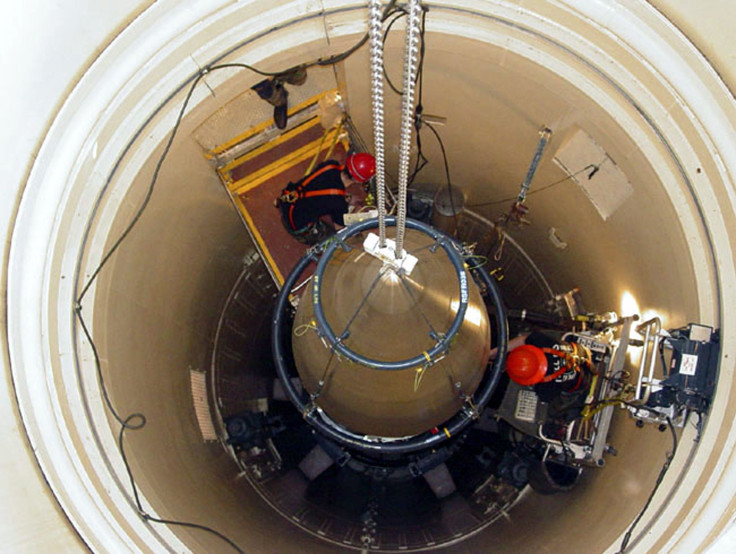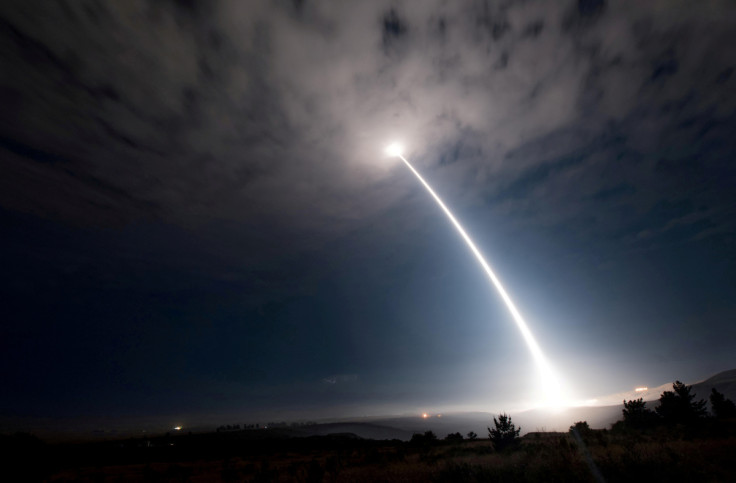Increase In Nuclear Base Personnel Diagnosed With Cancer Pushes Air Force To Expand Review

KEY POINTS
- The Force will also review the possibility of clusters of non-Hodgkin's lymphoma
- The review comes amid a reported increase in cancers among nuclear base personnel
- The study was designed by the U.S. Air Force School of Aerospace Medicine (USAFSAM)
The United States Air Force has expanded the review of cancers in everyone who worked on, guarded or operated the nation's warheads in its missile bases amid reports of increased cancer diagnoses among nuclear base personnel.
In an announcement on Wednesday, the Air Force Global Strike Command (AFGSC) said it would also examine the possibility of clusters of non-Hodgkin's lymphoma at intercontinental ballistic missile bases.
"Air Force Global Strike Command and our Air Force takes the responsibility to protect Airman and Guardians incredibly seriously, and their safety and health continues to be my priority," AFGSC Commander Gen. Thomas A. Bussiere said.
"We also continue to be committed to remaining transparent during this process, and we pledge to continue to maintain an open dialogue with members, their families and stakeholders throughout this process."
The study, designed by the U.S. Air Force School of Aerospace Medicine (USAFSAM), was approved after nine officers who had worked as missileers at Montana's Malmstrom Air Force Base were diagnosed with non-Hodgkin's lymphoma, according to a briefing obtained by The Associated Press.
The "Missile Community Cancer Study" will look at all ICBM Wings, all AFSCs in the ICBM field and the environment and environmental factors at ICBM installations, per the Air Force medical services.
The Air Force review will reportedly include F.E. Warren Air Force Base in Wyoming and Minot Air Force Base in North Dakota. The study only initially investigated its Malstrom base in Montana.
The study will be divided into two teams, according to USAFSAM commander Col. Tony Woodard.
"Both parts of the study (evaluating NHL or multiple cancer sites) will follow a phased approach," Woodard said. "Phase 1 is separated into three parts due to requests from different sources that house potential case identification data. Each of these sources is owned by different agencies that will have variable processing times."
"Once each study is completed, each team will then move to the next study in the sequence," Woodard said. "Some data overlap will occur potentially saving time with future study completion."
The agency is yet to determine how long the study will take. Phase one will reportedly include medical data from the Department of Defense and the Department of Veteran Affairs Cancer Registry.

© Copyright IBTimes 2025. All rights reserved.





















